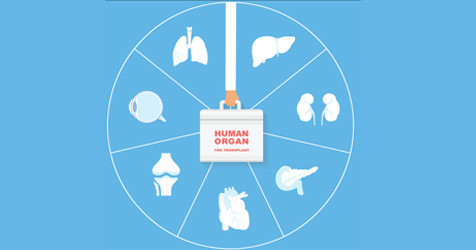
ORGAN TRANSPLANT SURGERY: THE AFTERMATH
Saturday, November 2, 2019WHAT IS ORGAN TRANSPLANT?
Organ transplantation is the moving of an organ from one body to another or from a donor site to another location on the person's own body, to replace the recipient's damaged or absent organ. Organs and/or tissues that are transplanted within the same person's body are called autografts.
HOW LONG DOES RECOVERY TAKE?
After their transplant, most people just do not understand the magnitude of the surgery they went though. Many think recovery is a matter of a few weeks. Recovery is hard work, as is coming to the realization that the transplant surgery carries benefits as well as challenges. One of the main challenges is being accustomed to new medication routines, else the new organ may be rejected by the body. There's also a chance you'll need to come back to the hospital for something minor or maybe more surgery.
WHAT ARE THE EMOTIONAL CHANGES AFTER THE TRASPLANT?
Most people feel good after a transplant. The body starts feeling better. With that increased sense of well-being, patients are often euphoric.
WHAT ARE THE MEDICATIONS REQUIRED AFTER ORGAN TRANSPLANTATION?
Like all organ transplant patients, you left the hospital with multiple medications. Perhaps some are to treat underlying conditions such as blood pressure and you are accustomed to taking them.
But the other medications are immunosuppressant drugs to keep your body from fighting off the new organ. To avoid problems post-transplant, you must take the medications as prescribed.
WHAT IS THE POST TRANSPLANT ROUTINE?
Expect to have an ongoing relationship with your organ transplant team. Depending on the type of transplant and your health status, you will be given a schedule of follow-up exams.
For the rest of their lives, organ transplant patients have to watch out for infection. It's crucial to promptly report side effects with post-transplant medications. It's important to keep underlying medical conditions, such as diabetes and high blood pressure, under control.
Organ transplant surgery is a trade-off. But if you realize the surgery is done to give you a better quality of life, it can make it easier to follow all the new health measures you are now expected to heed, such as taking your immunosuppressant medications on schedule.
WHAT ARE THE RISKS OF ORGAN TRANSPLANTATION?
Transplant rejection is a process in which a transplant recipient’s immune system attacks the transplanted organ or tissue. The body’s immune system is designed to protect against substances that may be harmful, such as germs, poisons, and cancer cells. These harmful substances have proteins called antigens on their surfaces. As soon as these antigens enter the body, the immune system recognizes them as foreign and attacks them.
Immunosuppressive drugs or immunosuppressive agents are drugs that inhibit or prevent activity of the immune system. They are used in immunosuppressive therapy to prevent the rejection of transplanted organs and tissues.
A common side-effect of many immunosuppressive drugs is immunodeficiency, because the majority of them act non-selectively, resulting in increased susceptibility to infections. There are also other side-effects. As immunosuppressive agents and graft survival have improved, infection and malignancy have become the main barriers to disease-free survival after organ transplantation.
As a result of the growing population of immunosuppressed patients with prolonged survival, an increased incidence and spectrum of opportunistic infections is observed.
WHY KIMS?
At KIMS, one of the best organ transplant hospitals in Hyderabad, we perform adult kidney, pancreas, and simultaneous kidney/pancreas, and paediatric kidney transplant surgeries and provide all necessary services to support and guide you through the transplantation experience.
Our organ transplant surgery doctor in Hyderabad provides complete pre-transplant evaluation, surgical services, and post-operative care. Along with our top transplant specialists in Hyderabad, our team of transplant nurses and other professionals work closely with you and your family.